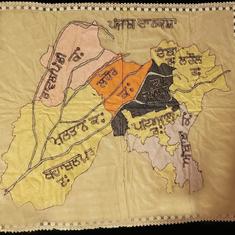Akhilesh Yadav, who completes four years in office this week, is a pale shadow of the young dynamic leader who had shown much promise when he took over as Uttar Pradesh chief minister in 2012. Recently, a dissident legislator from his own Samajwadi Party described him as the “weakest and most inefficient chief minister in the history of Uttar Pradesh”.
This scathing indictment may have been motivated by political rivalry and personal rancour, yet there is little doubt about the deepening disenchantment within the Samajwadi Party, and even more so among people across the state, with a leader who had raised many expectations when he came to power. With just a year left for the 2017 Assembly elections in the state, this is not good news for the ruling party.
Akhilesh Yadav’s biggest failure is seen in his inability to stamp his authority on his party, which seems even more unruly, faction-ridden and directionless than when he took over at the helm four years ago. Much of the problem seems to emanate from the dogged refusal by his own father and uncles, and other Samajwadi Party barons like Azam Khan, to allow the chief minister autonomy to build a more forward-looking political outfit. In the past few years, whenever Akhilesh Yadav has tried to call the shots, he has been repeatedly bypassed, snubbed and even humiliated by the elders of the Yadav clan.
Hemmed in
Nothing better illustrates Akhilesh Yadav’s predicament than an incident a few months ago when his uncle Shivpal Yadav in December suspended two of Akhilesh's closest aides – Anand Bhadauria and Sunil Singh Sajjan – from the party without even consulting the chief minister. This public embarrassment sent Akhilesh Yadav into a deep sulk. He refused to attend the annual Safai Mahotsav in his family village till his father finally stepped in and reinstated his friends.
The chief minister has also been struggling under the demands of more and more Yadav clan members. There at least 19 Yadav family members in elected posts of power at the state and central level. This perhaps makes it the largest political dynasty in the country. The byzantine politics within the clan, and the many power centres that have mushroomed across Uttar Pradesh under Samajwadi Party rule, has made the task of governance all the more arduous. “The young man did try in the beginning,” remarked a veteran political observer of the state. “But the political vehicle he is driving has turned out far too heavy for him to control the steering wheel.”
Law and order has been the biggest casualty of Akhilesh Yadav’s failure to come to grips with his job. Hooliganism by members of his party is rampant. In 2012, a boy was killed after he was hit by a bullet during celebratory firing by Samajwadi Party workers after the party won the Uttar Pradesh Assembly elections. As recently as last month, another boy was killed when Samajwadi Party workers again fired shots in the air to celebrate a local election victory. Earlier this month, a party legislator’s brother shot one person dead during an outburst related to road rage. Muscular goons brandishing guns and riding motorcycles and jeeps are routine features in the countryside. Vulnerable sections like lower castes, religious minorities and women have never felt so insecure before.
Fanning communal fires
To make matters worse, a concerted campaign by Hindutva groups reportedly egged on by sections of the Sangh Parivar to spread communal tension has kept the Akhilesh Yadav administration almost permanently on the back foot. There are disturbing reports that sections of the Samajwadi Party itself are fuelling these communal fires. Unfortunately, the state government appears to be unconcerned at the growing sense of siege within the minority community. It has complacently given itself a clean chit through commissions of inquiry like it did recently in the Muzaffarnagar riots judicial commission report.
Apart from the grim law and order situation, the Akhilesh Yadav government is also being blamed by farmers for agrarian distress with as many as 75 districts reportedly suffering from varying degrees of drought. Bundelkhand, a traditionally backward region, appears to have slipped into even more alarming distress in recent months forcing scores of farmers to commit suicide. Even Western Uttar Pradesh’s sugarcane farmers, a once prosperous group, are up in arms. They are particularly annoyed that sugarcane prices have not been increased for the past few years.
Interestingly, farmer’s outfits like the Bharitya Kisan Union and Bharitya Kisan Andolan now have started praising the previous Bahujan Samaj Party regime led by Mayawati as a time when sugarcane prices were raised every year and sugar mills functioned more normally. They have already threatened to vote against the Samajwadi Party in next year’s state assembly polls.
Indeed, with barely a year left for the crucial elections, the chief minister and his party are staring at the twin challenge of a resurgent Mayawati keen to take revenge for her party’s humiliating debacle in the Lok Sabha polls, and an aggressive Bharatiya Janata Party desperate to win by any means an election that is seen as make or break for Prime Minister Narendra Modi. It is becoming clear that the Samajwadi Party is unlikely to depend on Akhilesh Yadav’s administrative record for the 2017 elections given its poor public rating. Instead, there is growing speculation that the Samajwadi Party could join the Bharatiya Janata Party to communally polarise the state for mutual benefit.
The problem with this strategy is that it could sink the chief minister’s record even further. It will make his last year in power even worse than previous ones, and completely alienate his party’s sizeable Muslim minority voter base. The people of Uttar Pradesh would do well to brace themselves for a tough year ahead.










